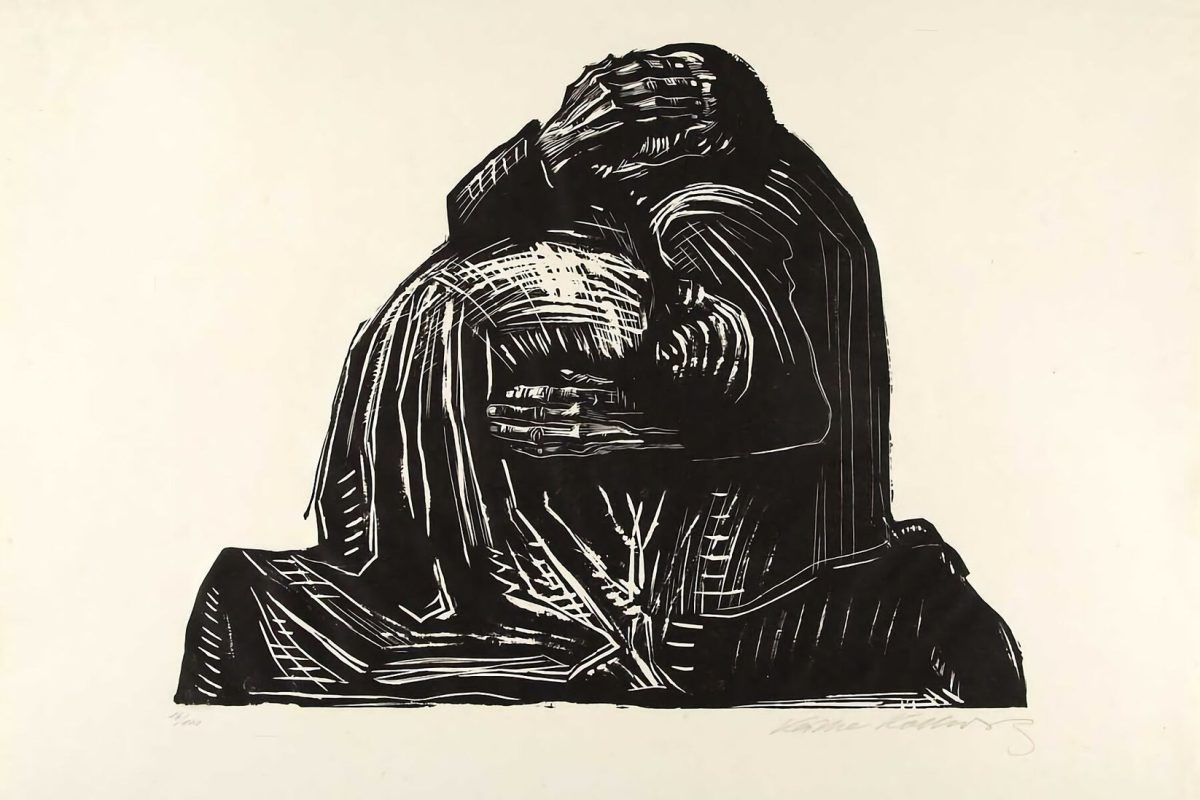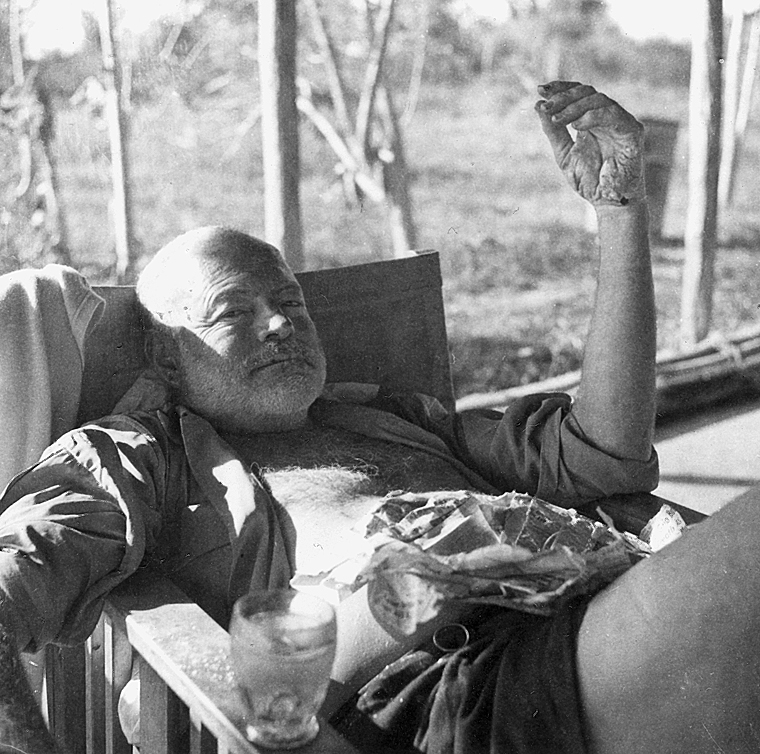“For sale: Baby shoes. Never worn.”
– the six-word story attributed to Ernest Hemingway

The Parents (War portfolio, plate 3) by Kathe Kollwitz – c.1921-1922. Buy the print.
You might have heard that Ernest Hemingway wrote a six-word short story in response to a $10 bet that so few words could make the reader cry. Hemingway won with:
“For sale: Baby shoes. Never worn.”
It’s a good story. But it might not be true. Online fact checker Snopes has investigated and ruled the story “undetermined”. A further source, Quote Investigator, says Hemingway’s very short story was first reported in the 1974 book Get Published! Get Produced!: A Literary Agent’s Tips on How to Sell Your Writing by Peter Miller:
Apparently, Ernest Hemingway was lunching at Luchow’s with a number of writers and claimed that he could write a short story that was only six words long. Of course, the other writers balked. Hemingway told each of them to put ten dollars in the middle of the table; if he was wrong, he said, he’d match it. If he was right, he would keep the entire pot. He quickly wrote six words down on a napkin and passed it around; Papa won the bet. The words were “FOR SALE, BABY SHOES, NEVER WORN.” A beginning, a middle and an end!
Sources for the anecdote are not provided. But the British writer Arthur C. Clarke in a letter dated 11 October 1991 added:
“My favourite is Hemingway’s—he’s supposed to have won a $10 bet (no small sum in the ’20s) from his fellow writers. They paid up without a word…
Here it is. I still can’t think of it without crying— FOR SALE. BABY SHOES. NEVER WORN.”
It’s all too believable that as skilled a writer as Hemingway could accomplish in half a dozen words what lesser writers fail to achieve in thousands. (Thomas Hardy, who wasn’t in on that bet, in a way managed the same in four words jotted in a notebook that inspired him to write The Mayor of Casterbridge: “Sale of a Wife.”)

Ernest Hemingway at a fishing camp in Shimoni, Kenya. – Ernest Hemingway Collection. John F. Kennedy Presidential Library and Museum, Boston, 1954
Hemingway (July 21, 1899–July 2, 1961) understood his role as writer, advising others what books they should read, telling one aspiring writer that “as a writer you should not judge. You should understand” and explaining the job in his Nobel Prize winning speech of 1954:
“Writing, at its best, is a lonely life. Organizations for writers palliate the writer’s loneliness but I doubt if they improve his writing. He grows in public stature as he sheds his loneliness and often his work deteriorates. For he does his work alone and if he is a good enough writer he must face eternity, or the lack of it, each day.
“For a true writer each book should be a new beginning where he tries again for something that is beyond attainment. He should always try for something that has never been done or that others have tried and failed. Then sometimes, with great luck, he will succeed.”
We’ll end with Hemingway being interviewed at his home in Cuba after his Nobel Prize win had been announced.
Would you like to support Flashbak?
Please consider making a donation to our site. We don't want to rely on ads to bring you the best of visual culture. You can also support us by signing up to our Mailing List. And you can also follow us on Facebook, Instagram and Twitter. For great art and culture delivered to your door, visit our shop.


